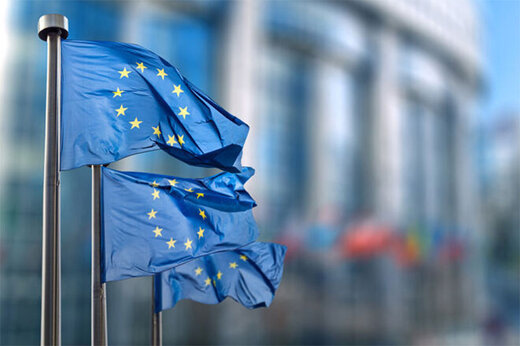The European Parliament, with 705 MPs, is one of the most important institutions of the European Union. On January 29, this legislative body approved an interventionist resolution concerning “Europe’s response to the protests in Iran” with 313 votes. The approvals of the European Parliament have a political/propaganda aspect and are not binding until a decision about them is taken by the European Council.
The “controversial” part of this resolution was the request of members of the parliament from the member states of the European Union to put the Islamic Revolution Guard Corps in the “European Union terrorist list”. But as expected, this request was not taken into consideration by the European Council that went that far only to impose “new package of sanctions” on Iran.
About the recent actions of Europe against Iran, some points are important:
First; The riots of the past months in Iran have made parts of the policy-making and decision-making system in European countries to take miscalculated measures against the Islamic Republic of Iran. By reflecting on some statements, actions and policies of some European governments regarding the Islamic Republic of Iran, it is clear that they are influenced by the hostile policies of the United States and the United Kingdom, as well as the illusory creations of “mafia media” and “anti-Iranian lobby” (the MKO, Zionists, etc.) active in those countries. The desperate action and request of the European Parliament to include the IRGC in the list of terrorist organizations is one of the clear examples in this regard.
This shows that based on the irrational views and insinuations of “terrorist and pressure groups”, the macro and long-term interests of Europe have been overshadowed and affected; this is in complete contradiction with the so-called political “rationality” of Europe. Unfortunately, European foreign policy is now surrounded more than ever by networks, elements and groups that hide their political interests and goals behind the interests of Europe and create tension in this area.
Second; Despite the recent resolution of the European Parliament, the Council of Europe, due to some reasons and considerations, including Iran’s warnings, bypassed it on the basis of the lack of necessary legal grounds to designate IRGC.
Third; At the current stage, the European Union has “changed tactics” and has moved from costly anti-sovereign measures to imposing more sanctions on the Islamic Republic of Iran. In this regard, the Council of Europe in its recent meeting and following the US, again included 18 Iranian personalities and 19 institutions in the list of sanctions.
Since the beginning of October, the United States, the European Union, the United Kingdom and Canada have imposed a total of 20 rounds of combined and new economic and human rights sanctions on the Islamic Republic of Iran with the stated goal of “maximum pressure”. Of course, Iran has reciprocated.
One of the “ponderable” points regarding the imposed sanctions is that the vast majority of these sanctions are against individuals and institutions that had been sanctioned many times before and whose names are included in the various sanctions packages that the US and Europe have announced at different times!
It goes without saying that the purpose of the US and Europe in announcing and applying these sanctions is mainly exploitation in the form of “psychological operations” with the aim of influencing Iran’s economic sectors and public opinion (disappointment, polarization, etc.).
And the final point is that designating the IRGC is not a new issue and it has been sanctioned by the US government before. Therefore, it does not have a special effect on the process of the IRGC’s inherent activities and tasks, which rely on domestic talents. But this never means Iran’s indifference or silence vis-a-vis Europe’s anti-sovereign action, which strongly contradicts international law.
The IRGC, as part of the country’s official defense force, is one of the “red lines” of the Islamic Republic of Iran. Any attempt to place the IRGC in the list of terrorist organizations in Europe will overshadow and impact the interests and national security of European countries before it harms the Islamic Republic of Iran.










0 Comments